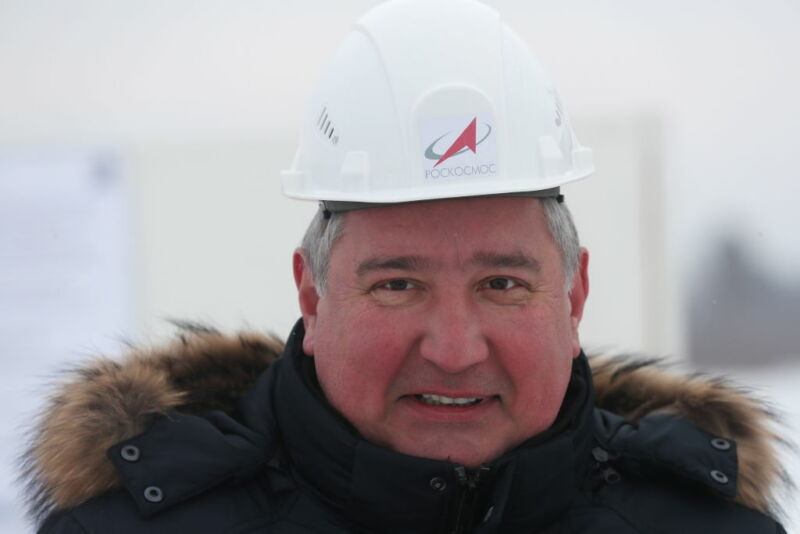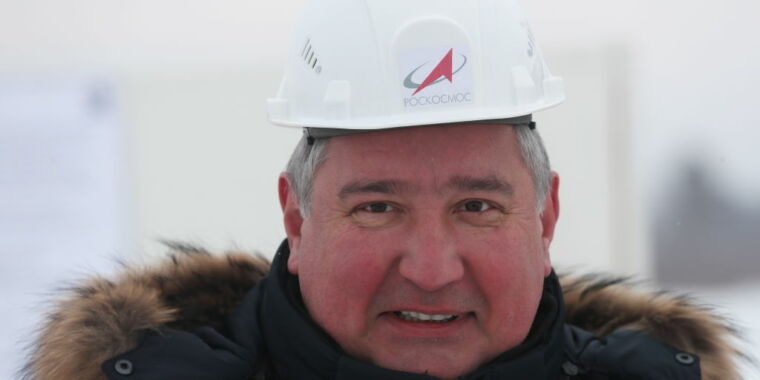
8:30 a.m. ET Friday Update: The Kremlin made it official in a short communiqué: Dmitry Rogozin has resigned as director general of Roscosmos, the country’s state-owned space company. The decree is effective immediately. Former Deputy Prime Minister Yuri Borisov will replace Rogozin.
The moves come amid a significant shift in leadership positions in Russia, nearly five months after the country’s invasion of Ukraine. Borisov has followed the same path to Roscosmos as Rogozin, a relegation. Both men served as deputy prime ministers over Russia’s space and defense industries before being transferred to Roscosmos. It is not clear where Rogozin will land.
This puts an end to Rogozin’s tumultuous career at Roscosmos, where he worked directly with the leaders of other international space agencies, including NASA and other international space station partners such as Europe, Canada and Japan. Since the invasion of Ukraine, Rogozin has become increasingly belligerent and has made numerous threats about Russian participation in the station. While most of those threats were ultimately hollow, they damaged working relationships with the West.
It is not known how Borisov will behave towards NASA and its other partners on the space station.
Original post: Rumors on Russian social media networks and in selected publications are circulating that the bombastic director-general of Roscosmos, Dmitry Rogozin, will soon lose his position.
Interfax news agency reports that Deputy Prime Minister Yuri Borisov, who oversees Russia’s space and defense industry, may be transferred to Roscosmos’ leadership. Separately, Telegram channels have cited other media outlets making similar claims about Borisov and Rogozin.
Just to be clear, these are rumours. And this isn’t the first time there’s been more speculation about the future of Rogozin, who took command of Roscosmos — a sprawling state-owned company responsible for the vast majority of Russia’s space activities — four years ago. He has had a troubled and controversial tenure, which, in addition to heated and destructive rhetoric, has seen the reliability and launch speed of Russian spacecraft decline.
The renewed speculation comes as Rogozin has continued to sever ties with the United States, Europe and other space partners who have supported Ukraine in the months since Russia’s invasion of that country and continued to wage war.
Here’s an abbreviated list of the controversies Rogozin has been embroiled in with Western officials over the past week:
- July 7: NASA took the extremely rare step of publicly criticizing Roscosmos after it used the International Space Station for propaganda purposes, in support of breakaway regions of Ukraine. “NASA strongly reprimands Russia for using the International Space Station for political purposes to support its war against Ukraine,” the space agency said. The European and Canadian space agencies also joined in the criticism.
- July 11: Russian publication Aviation Explorer reported that Rogozin refused to take a call from NASA administrator Bill Nelson in the wake of the ISS propaganda incident. “There is nothing to talk about. Let the sanctions be lifted first,” Rogozin is said to have said.
- July 12: Rogozin mocked US President Joe Biden on his Telegram channel after NASA unveiled the first image of the James Webb Space Telescope at a ceremony at the White House. Rogozin said Biden needed a large magnifying glass and went to the bathroom for a long time.
- July 12: The European Space Agency said it is “officially” ending work with Russia on the ExoMars probe to land on Mars. Rogozin responded with an angry message to this Telegram account, calling ESA chief Josef Aschbacher an “irresponsible bureaucrat.”
- July 12: Rogozin threatened to end Russian cooperation over the use of a new European robotic arm on the space station. This arm was developed by a number of European countries for ESA and launched in July 2021 to the Russian part of the space station. Rogozin’s comment raised questions about whether a spacewalk planned for next week to work on the robotic arm by Roscosmos cosmonaut Oleg Artemyev and ESA astronaut Samantha Cristoforetti would go ahead.
Relations between Russia and its Western partners in space have deteriorated significantly since the Russian invasion of Ukraine. However, NASA and its western partners have been trying to negotiate a professional agreement with the Russian civilian space operators to allow the International Space Station to fly safely. They did this despite Rogozin’s provocations.
But Rogozin’s behavior seems to be getting worse. Rogozin’s recent actions suggest he is becoming increasingly unhinged, isolated, desperate, or some combination of the two as rumors of his future circulate.
Meanwhile, NASA and Roscosmos continue to work on a possible “seat swap” in September that will see a NASA astronaut, Frank Rubio, fly on a Soyuz spacecraft and, for the first time, a Russian cosmonaut, Anna Kikina, fly on SpaceX’s Crew Dragon spacecraft. A final decision is to be made within the next few weeks, and it won’t be easy for NASA given Roscosmos’s tumultuous leadership.

